The Well-Tempered Ear
Wisconsin Chamber Orchestra’s new CD and Friday night concert champion racial diversity
1 Comment
PLEASE HELP THE EAR. IF YOU LIKE A CERTAIN BLOG POST, SPREAD THE WORD. FORWARD A LINK TO IT OR, SHARE IT or TAG IT (not just “Like” it) ON FACEBOOK. Performers can use the extra exposure to draw potential audience members to an event. And you might even attract new readers and subscribers to the blog.
By Jacob Stockinger
“Musical Landscapes in Color” is a five-year initiative by the Wisconsin Chamber Orchestra with its award-winning, composer-in-residence Dr. William Banfield (below), who has produced a body of work in the past 25 years that includes music, books, teaching and creative work that contributes to contemporary arts leadership.
The cultural undertaking aims to elevate the voices of an array of living, diverse composers of color throughout the United States. The project represents a significant step towards diversifying the classical music landscape through compositions and audiences, according to the WCO.
The first of several installments (below) — “Harmony in Black” — has just been released by Albany Records.
The album is available in a physical format and for digital streaming on Spotify, Apple Music, Amazon Music and YouTube, where you can sample it at the bottom.
Performed and recorded live on Friday, Oct. 13, 2023, it features excerpts from three compositions: one by four-time Grammy nominee Patrice Rushen entitled “Mine Eyes Have Seen The Glory”; and two by renowned composer Banfield entitled “Testimony of Tone, Tune, and Time” and “Symphony No. 8: Here I Stand.”
Their three compositions do not quote spiritual melodies directly, but do embody the spirit of those songs by drawing either on direct quotations of speeches or writings.
Multi-Grammy-nominated artist Patrice Rushen (below) is admired by many for her groundbreaking achievements including serving as Musical Director for the 46th, 47th and 48th Annual Grammy Awards.
CONTENTS:
Patrice Rushen: Movement 1: ”Mine Eyes Have Seen the Glory”
Dr. William Banfield: (starting at 8:10): “Testimony of Tone, Tune and Time” — Symphony No. 8
Performers are: retired City of Madison, Dane County and State of Wisconsin Judge Paul Higginbotham (below) as the narrator; saxophonist Matthew Sintchak; and the Wisconsin Chamber Orchestra under conductor and music director Andrew Sewell.
For more background, including a release reception, go to a story in Madison 365:
A WORLD PREMIERE THIS FRIDAY NIGHT
The project continues with a concert that takes place this Friday night, March 22, at 7:30 p.m. in the Capitol Theater of the Overture Center features the WORLD PREMIERE of Banfield’s Symphony No. 14 “Revelation.”
Guest artists include the Madison Youth Choirs, the Festival Choir of Madison and the Edgewood College Chamber Singers. Soloists include soprano Angela Brown, tenor Ben Johnson and baritone William Volmar.
Opening the 90-minute concert is Symphony No. 1 in G major, Op. 4 (1901) by British composer Edwin York Bowen, whose music shows influences of Rachmaninov, Chopin and Tchaikovsky.
Tickets are still available and cost $34.50, $75 and $95. For more information and tickets, go to: https://wcoconcerts.org/
Have you heard Banfield’s music?
What do you think of it?
The Ear wants to hear.
Tags: #BlogPost, #BlogPosting, #Composer-in-Residence, #FacebookPost, #FacebookPosting, #YouTubevideo, Abraham Lincoln, achievement, African, African American, African-American music, Albany Records, Album, Amazon, Amazon Music, American, Andrew Sewell, Android, Angela Brown, appellate, Apple Music, Apple Music Classical, Arts, asian, audience, award, baritone, Ben Johnson, black, Black composers, black music, blog, books, box office, British, Capitol Theater, CD, Cello, Chamber music, champion, Chopin, choral music, circuit court, city of Madison, civil rights, Classical music, color, Compact Disc, composer, composers of color, Composition, Concert, contemporary, contemporary composers, contemporary music, cost, court, creative, Dane County, digital, diversity, doctor, Dr., Edgewood College, Edgewood College Chamber Singers, Edwin York Bowen, England, English, enslaved, enslaved people, entitled, Europe, excerpts, Facebook, Festival Choir, format, Friday, Friday night, Google, Google Alert, Google Search, Grammy, groundbreaking, harmony, Harmony in Black, influence, information, initiative, IOS, it, Jacob Stockinger, judge, landscape, Latino, leadership, Lincoln, link, live, live music, Live Recording, living composers, Madison, Madison 365, Madison Youth Choirs, Madison365, Madison365.com, Martin Luther King, Martin Luther King Jr, Matthew Sintchak, melodies, melody, Mine Eyes Have Seen The Glory, MLK, movement, Music, musical, narrator, nominee, online, opera, Orchestra, Overture Center, Patrice Rushen, Paul Higgenbotham, physical, Polish, Polish composer, post, posting, premiere, price, project, quotations, race, Rachmaninoff, Rachmaninov, racism, recording, retired, Revelation, Russia, Russian, sample, Saxophone, saxophonist, share, sing, singer, Singing, slave, slavery, soloist, song, soprano, speech, speeches, spirit, spiritual, Spotify, State of Wisconsin, streamed music, streaming, streaming service, symphony, tag, Tchaikovsky, Teacher, teaching, tenor, testimony, The Ear, think hear, tickets, time, title, tone, tune, Twitter, U.S., UK, United States, Viola, Violin, vocal music, vocalist, WCO, Website, William Banfield, William Volmar, Wisconsin, Wisconsin Chamber Orchestra, work, works, world, world premiere, writings, X, year, York Bowen, you, YouTube
The Wisconsin Chamber Orchestra starts its four-concert Winter Chamber Series TONIGHT at 7:30. Tickets are $30 for one-time access from Friday night to Monday night
Leave a Comment
PLEASE HELP THE EAR. IF YOU LIKE A CERTAIN BLOG POST, SPREAD THE WORD. FORWARD A LINK TO IT OR, SHARE IT or TAG IT (not just “Like” it) ON FACEBOOK. Performers can use the extra exposure to draw potential audience members to an event. And you might even attract new readers and subscribers to the blog.
By Jacob Stockinger
The new semester of virtual online concerts begins tonight with the inauguration of the Winter Chamber Series by the Wisconsin Chamber Orchestra (WCO, below in a photo by Mike Gorski).
Tonight’s program features music by Giovanni Gabrieli, Valerie Coleman, Alec Wilder, Craig Russell and Franz Schubert. (In the YouTube video at the bottom, you can hear the first movement of the Schubert Cello Quintet, played by the Chamber Music Society of Lincoln Center.)
The programs are short and feature classic works as well as new music and neglected composers. Often single movements or excerpts rather than complete works are performed.
Concerts all debut on Fridays and remain available through Monday night. Debut dates are TONIGHT, Jan. 22; Feb. 26; March 26; and April 16. A ticket entitles the purchaser to one viewing.
Here is a description of the chamber music series from the WCO:
“While full orchestras remain sidelined, the WCO is excited to present the Winter Chamber Series. This new series will feature chamber works for multiple ensembles ranging from trios to octets, showcasing the versatility and caliber of the WCO’s 34 world-class musicians.
“Patrons will enjoy the four-concert series in the comfort of their own home, streaming each concert on WCO Live on-demand starting at 7:30 p.m. on the evening of the concert launch.
“All programs will be 60–75 minutes in length, with not only music but also stories from the WCO’s own musicians on their journey to becoming professional musicians.
“Also included is a pre-concert talk with maestro Andrew Sewell and Norman Gilliland, as well as a post-concert reflection with musicians of the WCO.”
Here is a link to the concerts, with programs plus notes by music director and conductor Sewell (below in a photo by Alex Cruz) as well as a link to purchase tickets from the Overture Center box office: https://wcoconcerts.org/concerts-tickets/winter-chamber-series
In addition, the WCO has started a musician’s relief fund. It seeks donations to pay musicians for the wages they have lost due to postponed or canceled concerts.
Here is a link: https://wcoconcerts.org/support/donate
Tags: #AlecWilder, #AndrewSewell, #ArtsPatron, #BlogPost, #BlogPosting, #BoxOffice, #BrassMusic, #CelloMusic, #ChamberMusic, #ChamberMusicSocietyofLIncolnCenter, #ConcertSeries, #CoronavirusPandemic, #COVID-19, #CraigRussell, #FacebookPost, #FacebookPosting, #FranzSchubert, #Fridaynight, #GiovanniGabrieli, #JacobStockinger, #LincolnCenter, #MeadWitterSchoolofMusic, #Mondaynight, #MusicalExcerpt, #MusicDirector, #NeglectedComposers, #NewMusic, #NormanGilliland, #OnlineConcert, #OvertureCenter, #Pre-concertTalk, #ProfessionalMusician, #ProgramNotes, #StringMusic, #StringQuartet, #TheEar, #TheInauguration, #TheUW, #UniversityofWisconsin-Madison, #ValerieColeman, #ViolinMusic, #VirtualConcert, #WindMusic, #WinterChamberSeries, #WisconsinChamberOrchestra, #WisconsinPublicRadio, #YouTubevideo, Alec Wilder, Andrew Sewell, Arts, audience, available, become, biography, blog, box office, brass music, calibre, canceled, cellist, Cello, cello music, Chamber music, Chamber Music Society of Lincoln Center, classic, Classical music, Coleman, comfort, complete, composer, Concert, concert series, conductor, coronavirus, Craig Russell, debut, donation, donor, Early music, ensemble, excerpt, excite, Facebook, Facebook post, Facebook posting, flute, forward, Franz Schubert, Friday, full, fund, Gabrieli, Giovanni Gabrieli, hearing, Home, Horn, host, inauguration, Jacob Stockinger, journey, length, like, Lincoln, LIncoln Center, link, listener, lost, Madison, Mead Witter School of Music, minute, minutes, Monday, movement, multiple, Music, Music director, musicians, neglected composers, new, New Music, night, Norman Gilliland, notes, Octet, one, online, Orchestra, Overture Center, pandemic, patron, post, post-concert, posting, postponed, pre-cocert, pre-concert, professional, program, program notes, purchase, purchaser, reflection, relief, remain, Russell, Schubert, semester, share, short, sidelined, single, stories, story, stream, string music, String quartet, symphony, tag, talk, The Ear, ticket, tickets, time, tonight, trio, United States, University of Wisconsin-Madison School of Music, University of Wisconsin–Madison, UW, UW-Madison, UW-Madsion, VALERIE COLEMAN, versatility, Viola, viola music, Violin, violinist, violist, virtual, WCO, Wilder, wind music, winter chamber music, Winter Chamber Series, Wisconsin, Wisconsin Chamber Orchestra, wisconsin public radio, YouTube
Classical music: What do you think about Abraham Lincoln and the statue of him on the UW-Madison campus?
2 Comments
PLEASE HELP THE EAR. IF YOU LIKE A CERTAIN BLOG POST, SPREAD THE WORD. FORWARD A LINK TO IT OR, SHARE IT or TAG IT (not just “Like” it) ON FACEBOOK. Performers can use the extra exposure to draw potential audience members to an event. And you might even attract new readers and subscribers to the blog.
By Jacob Stockinger
The proposal, discussion and controversy have become local, regional, national and international news.
What do you think about Abraham Lincoln?
And what do you think should be done about the statue of him (below, in a photo by Getty Images) on the University of Wisconsin-Madison campus? Should it go? Or should it stay? Why?
Leave a comment below.
While you consider those questions, perhaps you will find it worth listening to James Earl Jones (below) narrate “A Lincoln Portrait” by the American composer Aaron Copland.It is played by the Seattle Symphony Orchestra under conductor Gerard Schwarz in the excerpt below that was recently posted by Kathleen Zorko — “with hope” — on YouTube.
Tags: #AaronCopland, #AbrahamLincoln, #ALincolnPortrait, #AmericanComposer, #BlackLivesMatter, #BlackStudentUnion, #BlogPost, #BlogPosting, #CivilWar, #EmancipationProclamation, #FacebookPost, #FacebookPosting, #GerardSchwarz, #JacobStockinger, #JamesEarlJones, #NaxosRecords, #PoliticalActivism, #SeattleSymphony, #SocialActivist, #TheEar, #TheU.S., #UniversityofWisconsin-Madison, #YouTubevideo, A Lincoln Portrait, Aaron Copland, abolition, abolitionist, Abraham Lincoln, activist, American, Arts, audience, black, Black Lives Matter, Black Student Union, blog, Campus, Civil War, composer, conductor, Confederacy, Confederate, controversy, Copland, demonstration, discussion, emancipation, Emancipation Proclamation, excerpt, Facebook, freedom, Gerard Schwarz, hope, international, Jacob Stockinger, James Earl Jones, like, Lincoln, link, local, Madison, Music, narrator, national, Naxos, news, Orchestra, performer, play, political, Politics, post, posting, President, proposal, protest, racism, racist, regional, Seattle, Seattle Symphony, share, slave, slavery, statue, symphony, tag, The Ear, U.S., United States, University of Wisconsin–Madison, UW, UW-Madison, Wisconsin, YouTube
Classical music: In two FREE concerts on Sunday afternoon and evening, the UW Wind Ensemble celebrates Black History Month and the guest duo Bridge of Song celebrates Nordic song
1 Comment
PLEASE HELP THE EAR. IF YOU LIKE A CERTAIN BLOG POST, SPREAD THE WORD. FORWARD A LINK TO IT OR, SHARE IT or TAG IT (not just “Like” it) ON FACEBOOK. Performers can use the extra exposure to draw potential audience members to an event. And you might even attract new readers and subscribers to the blog.
By Jacob Stockinger
On a weekend with a lot of live music, two FREE concerts also take place at the University of Wisconsin-Madison’s new Hamel Music Center, 740 University Ave., on Sunday afternoon and early Sunday evening. Details are below:
BLACK HISTORY MONTH
At 2 p.m. in the Mead Witter Foundation Concert Hall, the UW Wind Ensemble (below) will celebrate Black History Month with a FREE concert.
The conductor is director Scott Teeple (below).
Also participating is the Madison-based Mt. Zion Baptist Church Gospel Choir (below), with director Leotha Stanley.
The program is:
Adolphus Hailstork (below): “American Guernica” (heard in the YouTube video at the bottom)
Armando Borolo: “Last Breaths”
DaSean Stokes, soloist
Aaron Copland: “A Lincoln Portrait”
Traditional/arr. Reynolds: “He’s Got the Whole World in His Hands”
Stephen Newby: “When I See His Glorious Face/Can’t Nobody Do Me Like Jesus”
Omar Thomas: “Of Our New Day Begun”
For more information, go to: https://www.music.wisc.edu/event/uw-wind-ensemble-7/
NORDIC SONG
Then at 6:30p.m. in the Collins Recital Hall, there is a FREE concert to promote Nordic song by Bridge of Song.
Bridge of Song is a voice and piano duo. It features soprano Kathleen Roland-Silverstein (below top) and pianist Collin Hansen (below bottom).
Songs will be performed in three languages — Swedish, Finnish and English. For a complete program of composers and works – unfortunately, with no translations of the foreign-language titles – as well as extended biographies of the performers, go to: https://www.music.wisc.edu/event/bridge-of-song/
Tags: #AaronCopland, #AbrahamLincoln, #AdolphusHailstork, #ALincolnPortrait, #ArmandoBarolo, #BaptistReligion, #BlackComposer, #BlackHistoryMonth, #BlogPost, #BlogPosting, #BridgeofSong, #ChoralMusic, #ChristianReligion, #CollaborativePianist, #CollinHansen, #CollinsRecitalHall, #DaSeanStokes, #EnglishLanguage, #FacebookPost, #FacebookPosting, #FinnishComposer, #FinnishLanguage, #ForeignLanguage, #GospelChoir, #GospelMusic, #HamelMusicCenter, #HesGottheWholeWorldinHisHands, #JacobStockinger, #JesusChrist, #KathleenRoland-Silverstein, #LeothaStanley, #LiveMusic, #MeadWitterFoundationConcertHall, #MeadWitterSchoolofMusic, #Mt.ZionBaptistChurchGospelChoir, #Mt.ZionGospelChoir, #NegroSpiritual, #NordicMusic, #NordicSong, #OmarThomas, #PianoAccompaniment, #PianoAccompanist, #ScottTeeple, #SopranoSinger, #SpiritualMusic, #StephenNewby, #Sundayafternoon, #SwedishLanguage, #TraditionalMusic, #UniversityofWisconsin-Madison, #UWWindEnsemble, #VocalMusic, #WindMusic, #YouTubevideo, A Lincoln Portrait, Aaron Copland, Abraham Lincoln, Adolphus Hailstork, afternoon, America, American, Armando Barolo, arrangement, Arts, audience, Baptist, biography, black, Black History Month, blog, breath, bridge, Bridge of Song, celebrate, choral music, Christian, Classical music, Collin Hansen, Collins Recital Hall, complete, composer, Concert, conductor, Copland, DaSean Stokes, day, director, duo, English, evening, face, Facebook, Finland, Finnish, foreign, forward, free, glorious, God, gospel, gospel choir, Guernica, Hamel Music Center, hands, He's Got the Whole World in His Hands, Jacob Stockinger, Jesus, Kathleen Roland-Silverstein, language, last, Leotha Stanley, like, Lincoln, link, live music, Madison, Mead Witter Foundation Concert Hall, Mead Witter School of Music, Mt. Zion, Mt. Zion Baptist Church Gospel Choir, Mt. Zion Gospel Choir, Music, Negro spiritual, Negro spirituals, new, Nordic, Nordic music, Nordic song, Omar Thomas, participant, perform, performer, Pianist, Piano, post, posting, program, promote, Religion, Scott Teeple, share, Singing, solo, soloist, song, soprano, spiritual, Stephen Newby, Sunday, Swedish, tag, traditional, translation, United States, University of Wisconsin-Madison School of Music, University of Wisconsin–Madison, UW, UW Wind Ensemble, UW-Madison, vocal music, weekend, whole, wind music, winds, Wisconsin, woodwinds, works, world, YouTube, Zion
Classical music: This weekend, prize-winning pianist Joyce Yang solos in Prokofiev’s most popular piano concerto with the Madison Symphony Orchestra. Works by Schumann and Aaron Jay Kernis round out the program
1 Comment
PLEASE HELP THE EAR. IF YOU LIKE A CERTAIN BLOG POST, PLEASE SPREAD THE WORD. FORWARD A LINK TO IT OR, SHARE IT or TAG IT (not just “Like” it) ON FACEBOOK. Performers can use the extra exposure to draw potential audience members to an event. And you might even attract new readers and subscribers to the blog.
By Jacob Stockinger
This weekend, prize-winning pianist Joyce Yang (below) will return to Madison to join the Madison Symphony Orchestra in her local concerto debut and perform Prokofiev’s brilliant, bravura and tuneful Piano Concerto No. 3 in C major, Op. 26.
The concert opens with Kernis’ Newly Drawn Sky and concludes with Schumann’s Symphony No. 2 in C Major, Op. 61.
Performances will be held in Overture Hall, 201 State Street, on Friday night, Nov. 8, at 7:30 p.m.; on Saturday night, Nov. 9, at 8 p.m.; and Sunday afternoon, Nov. 10, at 2:30 p.m.
Tickets are $19-$95 with discounts available. See below for details.
Speaking about the program, music director and maestro John DeMain (below, in a photo by Greg Anderson) says: “November brings us another Madison Symphony debut, that of the amazing pianist Joyce Yang. She will perform the Prokofiev’s dazzling Piano Concerto No. 3, one of the great and most popular concertos, and certainly a favorite of mine.”
Adds DeMain: “I can’t wait for audiences to experience the hauntingly beautiful Newly Drawn Sky by Aaron Jay Kernis. And of the four symphonies by Robert Schumann, many regard his second as the greatest of them all.”
According to Aaron Jay Kernis (below), who has won the Pulitzer Prize and a Grammy Award and who teaches at the Yale School of Music, “Newly Drawn Sky” is “a lyrical, reflective piece for orchestra, a reminiscence of the first summer night by the ocean spent with my young twins, and of the summer sky at dusk.”
The chromatically shifting three-note chords that begin in the strings and transfer to the winds are a central element in the creation of this work. The works last approximately 17 minutes and was premiered at the Ravinia Festival in 2005 by the Chicago Symphony Orchestra.
To read more about Kernis and his successful career, go to: https://en.wikipedia.org/wiki/Aaron_Jay_Kernis
Sergei Prokofiev (below) himself played the solo part at the world premiere of his Piano Concerto No. 3 on Dec. 16, 1921 in Chicago with the Chicago Symphony Orchestra. Although he started work on the composition as early as 1913, the majority of it was completed in 1921 and the piece didn’t gain popularity until 1922 when it was confirmed in the 20th-century canon. (You can hear Prokofiev play the first movement in the YouTube video at the bottom.) The Ear thinks that the work has much Russian Romanticism in it and if you like Rachmaninoff, you will probably like this Prokofiev.
Originally a composer for keyboard, Robert Schumann (below with wife Clara) began writing symphonies around the time of his marriage to his virtuoso pianist and composer wife Clara Wieck, who encouraged his compositional expansions.
The uplifting Symphony in C major was created while the composer was troubled with depression and hearing loss; a Beethovenian triumph over pessimism and despair, the creation of this symphony served as a healing process for Schumann.
ABOUT JOYCE YANG
Blessed with “poetic and sensitive pianism” (The Washington Post) and a “wondrous sense of color” (San Francisco Classical Voice), Grammy-nominated pianist Joyce Yang, who years ago played a recital at the Wisconsin Union Theater, captivates audiences with her virtuosity, lyricism and interpretive sensitivity.
Yang first came to international attention in 2005 when she won the silver medal at the 12th Van Cliburn International Piano Competition. The youngest contestant at 19 years old, she took home two additional awards: Best Performance of Chamber Music (with the Takacs Quartet), and Best Performance of a New Work.
In 2006 Yang (below) made her celebrated New York Philharmonic debut alongside conductor Lorin Maazel at Avery Fisher Hall in Lincoln Center along with the orchestra’s tour of Asia, making a triumphant return to her hometown of Seoul, South Korea.
CONCERT, TICKET AND EVENT DETAILS
The lobby opens 90 minutes prior to each concert.
One hour before each performance, Wisconsin Public Radio host Anders Yocom (below, in a photo by James Gill )will lead a 30-minute Prelude Discussion in Overture Hall to enhance concertgoers’ understanding and listening experience. It is free to ticket holders.
The MSO recommends concert attendees arrive early for each performance to make sure they have time to pass through Overture Center’s security stations, and so they can experience the Prelude Discussion.
Program notes for the concerts are available online: http://bit.ly/msonov19programnotes.
- Single Tickets are $19-$95 each and are on sale now at: https://madisonsymphony.org/event/joyce-yang-plays-prokofiev/through the Overture Center Box Office at 201 State Street, or by calling the Box Office at (608) 258-4141. Fees apply to online/phone sales.
- Groups of 10 or more can save 25% by calling the MSO office at (608) 257-3734. For more information, visit, https://www.madisonsymphony.org/groups.
- Student rush tickets can be purchased in person on the day of the concert at the Overture Center Box Office at 201 State Street. Students must show a valid student ID and can receive up to two $15 or $20 tickets. More information is at: https://www.madisonsymphony.org/studentrush
- Seniors age 62 and up receive 20% savings on advance and day-of-concert ticket purchases in select areas of the hall.
- Flex-ticket booklets of 8-10 vouchers for 2019-20 symphony subscription concerts are available. Learn more at: https://madisonsymphony.org/flex
- Subscriptions for the 2019–2020 season are available now. Learn more at: https://madisonsymphony.org/19-20
Discounted seats are subject to availability, and discounts may not be combined.
Major funding for this concert is provided by Madison Magazine, Stephen D. Morton, National Guardian Life Insurance Company, Scott and Janet Cabot, and Peggy and Tom Pyle. Additional funding provided by Foley & Lardner LLP, Howard Kidd and Margaret Murphy, and the Wisconsin Arts Board with funds from the State of Wisconsin and the National Endowment for the Arts
Tags: #20thCentury, #AaronJayKernis, #AcademicFestivalOverture, #AndersYocom, #AsianComposer, #AveryFisher, #BestPerformance, #BlogPost, #BlogPosting, #BoxOffice, #ChamberMusic, #ChicagoIllinois, #ChicagoSymphonyOrchestra, #ClaraSchumann, #ClaraWieck, #ContemporaryComposer, #ContemporaryMusic, #FacebookPost, #FacebookPosting, #FoleyandLardner, #Fridaynight, #GrammyAward, #GrammyNominations, #HearingLoss, #husband-and-wife, #JohnDeMain, #JoyceYang, #KeyboardMusic, #LifeInsurance, #LincolnCenter, #LivingComposer, #LorinMaazel, #MadisonMagazine, #MadisonSymphonyOrchestra, #MeadWitterSchoolofMusic, #MelodicMusic, #MusicalInterpretation, #MusicDirector, #NationalEndowmentfortheArts, #NationalGuardianLifeInsurance, #NewMusic, #NewWork, #NewYorkCity, #NewYorkPhilharmonic, #OrchestralMusic, #OvertureCenter, #OvertureHall, #PianoCompetition, #PianoConcerto, #Pre-concertLecture, #PreludeDiscussion, #Prize-Winning, #ProgramNotes, #PulitzerPrize, #RadioHost, #RaviniaFestival, #RobertSchumann, #RomanticMusic, #RussianRomanticism, #SaturdayNight, #SeniorCitizen, #SeoulSouthKorea, #SergeiProkofiev, #SergeiRachmaninoff, #SergeiRachmaninov, #SilverMedal, #SouthKorea, #SouthKorean, #Sovietcomposer, #SovietUnion, #StateOfWisconsin, #StephenD.Morton, #StringQuartet, #StringSection, #StudentRush, #SubscriptionTicket, #SummerNight, #Sundayafternoon, #TakacsQuartet, #TheEar, #TheWashingtonPost, #TomPyle, #UniversityofWisconsin-Madison, #VanCliburnInternationalPianoCompetition, #Wikipediabiography, #Wikipediaentry, #WindSection, #WisconsinArtsBoard, #WisconsinPublicRadio, #WisconsinUnionTheater, #WorldPremiere, #YaleSchoolofMusic, #YaleUniversity, #YouTubevideo, 20th-century, Aaron Jay Kernis, afternoon, Anders Yocom, Arts, Asia, audience, Avery Fisher, Avery Fisher Hall, award, beautiful, Beethoven, Beethovenian, best performance, biography, blog, box office, bravura, brilliant, Canon, career, central, Chamber music, Chicago, Chicago Symphony Orchestra, children, chord, chords, chromatic, Clara Schumann, Clara Wieck, Classical music, classicalmusic, color, composer, Composition, Concert, concerto, conclude, conductor, contemporary, contestant, Creation, debut, depressing, depression, despair, discount, discussion, donor, drawn, dusk, early, element, experience, Facebook, favorite, favorite composers, Foley and Lardner, forward, Friday, funding, funds, Grammy Award, group, haunting, healing, hearing, hearing loss, hometown, husband, interpretation, interpretive, Jacob Stockinger, John DeMain, Joyce Yang, Keyboard, kids, Korean, lecture, life insurance, like, Lincoln, LIncoln Center, link, listening, living, Living composer, lobby, local, Lorin Maazel, loss, Love, Ludwig van Beethoven, lyrical, lyricism, Madison, Madison Magazine, Madison Symphony Orchestra, Maestro, majority, Marriage, Mead Witter School of Music, melodic, modern, MSO, Music, Music director, musical, National Endowment for the Arts, National Guardian Life Insurance, NEA, New Music, new work, New York City, New York Philharmonic, newly, night, note, ocean, Orchestra, orchestral music, Overture Center, Overture Center for the Arts, Overture Hall, perform, performance, performer, pessimism, Pianist, Piano, Piano concerto, piece, poetic, popular, post, posting, pre-concert, premiere, prize, process, program notes, Prokofiev, Pulitzer Prize, Rachmainoff, Rachmaninoff, Rachmaninov, Radio, radio host, Ravinia, Ravinia Festival, read, recital, reflective, reminiscence, Robert Schumann, Romantic, Romanticism, rush, Russia, Russian, San Francisco, Saturday night, Schumann, seats, security, senior, sense, sensitive, Seoul, Sergei Prokofiev, Sergei Rachmaninoff, Sergei Rachmaninov, share, silver medal, sky, Soviet Union, speak, State of Wisconsin, Stephen D. Morton, string music, String quartet, strings, Student, subscription, summer, summer night, Sunday, support, symphonies, symphony, tag, Takacs Quartet, The Ear, The Washington Post, tickets, Tom Pyle, tour, transfer, triumph, trouble, tune, tuneful, twin, understanding, United States, University of Wisconsin-Madison School of Music, University of Wisconsin–Madison, uplifting, USSR, Van Cliburn, Van Cliburn International Piano Competition, video, virtuosity, virtuoso, voice, weekend, wife, Wikipedia, wind section, winds, Wisconsin, Wisconsin Arts Board, wisconsin public radio, Wisconsin Union Theater, work, world premiere, WPR, Yale, Yale School of Music, Yale University, Yang, young, YouTube, YouTube video
Classical music: The Madison Symphony Orchestra concerts this weekend feature three local debuts — by a woman conductor, a Grammy-winning cellist and an immigrant composer
2 Comments
IF YOU LIKE A CERTAIN BLOG POST, PLEASE FORWARD A LINK TO IT OR SHARE IT (not just “Like” it) ON FACEBOOK. Performers can use the extra exposure to draw potential audience members to an event.
By Jacob Stockinger
Three local debuts will take place this weekend in the three “Epic Romance” concerts by the Madison Symphony Orchestra (below).
Renowned Canadian guest conductor Tania Miller will lead the MSO while music director John DeMain makes his debut at the Liceu Theater in Barcelona, conducting the opera Candide in celebration of the 100th anniversary of Leonard Bernstein’s birth.
Grammy Award-winning American cellist Zuill Bailey will make his Madison Symphony Orchestra (MSO) solo debut in Edward Elgar’s Cello Concerto.
And Canadian composer Michael Oesterle will be performed for the first time in Madison when his work “Home” opens each concert.
The second half of the program is Peter Ilyich Tchaikovsky’s Symphony No. 5.
Performances will be held in Overture Hall of the Overture Center, 2912 State Street, on Friday, Oct. 19, at 7:30 p.m.; on Saturday, Oct. 20 at 8 p.m.; and on Sunday, Oct. 21, at 2:30 p.m.
Here are more details:
Canadian Conductor Tania Miller has distinguished herself as a dynamic interpreter, musician and innovator, on the podium and off. She has been praised for “energy, grace, precision and restraint.” She has appeared as a guest conductor in Canada, the United States and Europe with such orchestras as the Bern Symphony Orchestra, Seattle Symphony, Oregon Symphony and the Vancouver Symphony, among others.
Over a 14-year tenure as the Music Director of the Victoria Symphony in Canada, Miller (below) gained national acclaim for her passion and commitment to the orchestra and community. Recipient of the 2017 Friends of Canadian Music award from the Canadian League of Composers for her acclaimed commitment to contemporary music in Canada, Miller has been an example of the impact of commitment and dedication to an orchestra and to the future of orchestral music through creative innovation and vision.
You can hear Tania Miller discuss women conductors in the informative YouTube video at the bottom.(But please be forewarned: YouTube was having major technical issues and glitches last night that affected all their videos on this blog, not just this one. If it doesn’t load when you try, wait and then try again.)
Zuill Bailey (below), described by Classical Net as “easily one of the finest cellists today,” has been featured with symphony orchestras worldwide, including Los Angeles, Chicago, San Francisco, Toronto, Israel, Cape Town, and the Bruckner Orchestra in Linz, Austria. Bailey has also appeared at Disney Hall, the Kennedy Center, the United Nations, Lincoln Center and Carnegie Hall.
In 2017, Bailey won a best solo performance Grammy Award for his live recording of “Tales of Hemingway,” by composer Michael Daugherty. His celebrated “Bach Cello Suites” and recently released Britten Cello Symphony and Sonata CD with pianist Natasha Paremski immediately rose to the No. 1 spot on the Billboard magazine Classical Chart.
His Cello Concerto was the last notable work by Sir Edward Elgar (below), composed in 1919 in the aftermath of World Ear I. Upon regaining consciousness following a 1918 tonsillectomy, Elgar immediately asked for pencil and paper and wrote down the melody that would become the first theme in this concerto.
Despite today’s renown as a crowd favorite, the piece did not achieve wide popularity until the 1960s, when a recording by Jacqueline du Pré caught the public’s attention, and it became a classical favorite.
Michael Oesterle’s “Home” had its world premiere in November 2017 with the Royal Conservatory Orchestra and conductor Tania Miller.
The piece is an homage to the great geographical ebb and flow of humanity, also known as the immigrant experience. Oesterle (below) notes, “I wrote it through the filter of my personal impressions as an immigrant, and with the realization that this subject is humbling in its breadth.”
Composed between May and August 1888, Tchaikovsky’s Symphony No. 5 was first performed in St. Petersburg at the Mariinsky Theatre with Tchaikovsky below) conducting.
Unlike its two predecessors, there is no known program for the Fifth Symphony, save for a recurring main theme heard throughout all four movements. Over the years this theme has become known as the “fate” motive; its original ominous character undergoes various metamorphoses, emerging triumphant in the score’s concluding pages.
ABOUT ATTENDING
The lobby opens 90 minutes prior to each concert. One hour before each performance, Madison Symphony Chorus Director and UW-Madison director of choral activities Beverly Taylor (below) will lead a 30-minute Prelude Discussion in Overture Hall to enhance concertgoers’ understanding and listening experience. It is free to ticket holders.
The MSO recommends concert attendees arrive early for each performance to make sure they have time to pass through Overture Center’s security stations, and so they can experience the Prelude Discussion.
Program notes for the concerts are available online: http://bitly.com/oct2018programnotes
Tickets can be purchased in the following ways:
- Single Tickets are $18-$93 each and are on sale now at: https://madisonsymphony.org/ax through the Overture Center Box Office at 201 State Street, or by calling the Box Office at (608) 258-4141. Fees apply to online/phone sales.
- Groups of 10 or more can save 25% by calling the MSO office at (608) 257-3734. For more information, visit, https://www.madisonsymphony.org/groups.
- Student rush tickets can be purchased in person on the day of the concert at the Overture Center Box Office at 201 State Street. Students must show a valid student ID and can receive up to two $15 or $20 tickets. More information is at: https://www.madisonsymphony.org/studentrush
- Seniors age 62 and up receive 20% savings on advance and day-of-concert ticket purchases in select areas of the hall.
- Subscribers to 5 or more symphony subscription concerts can save up to 50% off single ticket prices. More information is available about the season at: https://madisonsymphony.org/18-19
- Flex-ticket booklets of 10 vouchers for 18-19 symphony subscription concerts are available. Learn more at: https://madisonsymphony.org/flex
Discounted seats are subject to availability, and discounts may not be combined.
Find more information, go to madisonsymphony.org
Major funding for the October concert is provided by: Mirror 34 Productions and National Guardian Life Insurance Company. Additional funding is provided by John A. Johnson Foundation, a component fund of the Madison Community Foundation, Barbara J. Merz, Selma Van Eyck, and the Wisconsin Arts Board, with funds from the State of Wisconsin and the National Endowment for the Arts.
Tags: #AmericanImmigration, #AntonBruckner, #AsianImmigration, #BarcelonaSpain, #BenjaminBritten, #BillboardMagazine, #BlogPost, #BlogPosting, #BoxOffice, #CanadianComposer, #CanadianConductor, #CanadianLeagueofComposers, #CanadianMusic, #CandideOpera, #CapeTown, #CarnegieHall, #CelloConcerto, #ChoralMusic, #ClassicalChart, #ClassicalNet, #CompactDisc, #ContemporaryComposers, #ContemporaryMusic, #DisneyHall, #EbbandFlow, #EdwardElgar, #ErnestHemingway, #EuropeanImmigration, #FacebookPost, #FemaleConductor, #GrammyAward, #GuestConductor, #HomeWebsite, #InsuranceCompany, #JacquelineduPré, #JohannSebastianBach, #JohnDeMain, #KennedyCenter, #LeonardBernstein, #LincolnCenter, #LinzAustria, #LiveRecording, #MadisonCommunityFoundation, #MadisonSymphonyChorus, #MadisonSymphonyOrchestra, #MariinskyTheatre, #MeadWitterSchoolofMusic, #MichaelOesterle, #MusicalInterpretation, #MusicDirector, #NatashaParemski, #NationalEndowmentfortheArts, #NationalGuardianLife, #NewMusic, #OperaMusic, #OrchestralMusic, #OregonSymphony, #OvertureCenter, #OvertureHall, #PeterIlyichTchaikovsky, #PublicAttention, #RoyalConservatory, #RussianComposer, #SeattleSymphony, #SeattleWashington, #SoloCelloSuites, #SoloDebut, #SouthAfrica, #StateOfWisconsin, #TalesofHemingway, #TaniaMiller, #TechnicalGlitch, #TechnicalIssue, #The1960s, #The60s, #TorontoCanada, #UnitedNations, #UnitedStates, #UniversityofWisconsin-Madison, #VancouverCanada, #VancouverSymphony, #VictoriaSymphony, #WisconsinArtsBoard, #WomanConductor, #WorldPremiere, #WorldWarI, #YouTubevideo, #ZuillBailey, 1960s, acclaim, anniversary, Anton Bruckner, Arts, Austria, award, Bach, Barcelona, Benjamin Britten, Bern, BernSwitzerland, Billboard magazine, birth, Canadian, Candide, Cape Town, Carnegie Hall, cellist, Cello, centennial, character, Chicago, choral music, Classical chart, Classical music, Classical Net, commitment, community, Compact Disc, composer, concerto, conductor, debut, dedication, discount, discussion, Disney Hall, Edward Elgar, epic, Ernest Hemingway, Europe, example, Facebook, favorite, female, funding, geographical, geography, glitch, Grammy, Grammy Award, group, homage, Home, immigrant, immigration, impact, impression, innovation, innovator, insurance, interpretation, interpreter, Israel, issue, Jacob Stockinger, Jacqueline du Pré, Johann Sebastian Bach, John DeMain, Kennedy Center, Leonard Bernstein, Lincoln, LIncoln Center, Linz, Live Recording, Los Angeles, Madison, Madison Community Foundation, Madison Symphony Chorus, Madison Symphony Orchestra, Mariinsky Theatre, Mead Witter School of Music, melody, metamorphoses, Michael Oesterle, Music, Natasha Paremski, National Endowment for the Arts, NEA, New York City, ominous, online, opera, Oregon, Passion, personal, Peter Ilyich Tchaikovsky, Pianist, Piano, podium, popular, popularity, Prelude, public attention, Romance, Royal Conservatory, Russia, San Francisco, Seattle, security, senior, solo, Sonata, South Africa, Spain, St. Petersburg, State of Wisconsin, Student, subscriber, Switzerland, symphony, Tales of Hemingway, Tania Miller, technical, theme, ticket, Toronto, United Nations, United States, University of Wisconsin-Madison School of Music, University of Wisconsin–Madison, Victoria, Viola, Violin, vision, web site, Website, Wisconsin, Wisconsin Arts Board, women, YouTube, Zuill Bailey
Classical music: Wind music is in the spotlight this coming week at the UW-Madison
2 Comments
IF YOU LIKE A CERTAIN BLOG POST, PLEASE FORWARD A LINK TO IT OR SHARE IT (not just “Like It”) ON FACEBOOK. Performers can use the extra exposure to draw potential audience members to an event.
By Jacob Stockinger
Last weekend brought the fifth annual Brass Fest to the University of Wisconsin-Madison’s Mead Witter School of Music.
This week, wind music takes center stage at the UW-Madison.
Here is a listing of the FREE events — except for the concert in Baraboo on Friday — that are open to the public:
WEDNESDAY
On this Wednesday, Oct. 3, at 7:30 p.m. in Mills Hall, the veteran Wingra Wind Quintet (below), made up of UW faculty members, will perform a FREE program called “I Hate Music,” taken from the title of a song cycle by Leonard Bernstein. (You can hear a song, sung by Barbara Bonney, from “I Hate Music” in the YouTube video at the bottom.)
The composers are all American and include Bernstein as well as Aaron Copland, Lukas Foss, David Diamond and Walter Piston.
The guest artist is soprano Sarah Brailey, a UW-Madison alumna, who just excelled last week in Baroque music by Johann Sebastian Bach and who has established a national reputation while winning high praise from The New York Times.
For details about the specific pieces on the program as well as more background about the Wingra Wind Quintet (below, in a photo by Katrin Talbot), which was founded in 1965, go to:
https://www.music.wisc.edu/event/wingra-wind-quintet-4/
FRIDAY
On Friday, Oct. 5, at 7:30 in the Al Ringling Theatre in Baraboo, the Wingra Wind Quintet will team up with the celebrated Pro Arte Quartet (below in a photo by Rick Langer) and guest double bassist Kris Saebo, to perform Franz Schubert’s Octet for winds and strings, D. 803. For more information, including purchasing tickets, go to: http://www.alringling.org/events
This coming Friday, Oct. 5, at 8 p.m. In Mills Hall, the UW Wind Ensemble (below), under conductor Scott Teeple and two graduate student conductors –- Ross Wolf and Cole Hairston — will perform a FREE concert of varied music from Giovanni Gabrieli and Johann Sebastian Bach to Peter Ilyich Tchaikovsky and Ralph Vaughan Williams.
For more the complete program, go to: https://www.music.wisc.edu/event/uw-wind-ensemble-3/
SUNDAY
On Sunday afternoon, Oct. 7, at 2 p.m. in Mills Hall, UW professor of composition and jazz saxophone Les Thimmig (below) will present a FREE 10-year retrospective of his compositions for different kinds of clarinets.
Also performing are his faculty colleagues clarinetist Alicia Lee (below) and pianist Jessica Johnson.
For information about Thimmig and the concert’s program, go to: https://www.music.wisc.edu/event/faculty-recital-compositions-of-les-thimmig-solo-and-duo/
At 4 p.m. on Sunday, Oct. 7, in Morphy Recital Hall, guest flutist John Bailey (below), who teaches at the University of Nebraska-Lincoln, gives a FREE lecture and recital of music by Wolfgang Amadeus Mozart, Philippe Gaubert and Theodor Blumer. Sorry, no specific works are mentioned.
Bailey will be joined by UW pianist Daniel Fung.
For extensive background about Bailey, who is a member of the Moran Woodwind Quintet, go to: https://www.music.wisc.edu/event/guest-artist-recital-and-lecture-john-bailey-flute/
Tags: #AaronCopland, #AlRinglingTheatre, #AmericanComposer, #BarabooWisconsin, #BarbaraBonney, #BaroqueMusic, #BassoonMusic, #BlogPost, #BlogPosting, #BrassMusic, #ChamberMusic, #ClarinetMusic, #DavidDiamond, #DoubleBass, #FacebookPost, #FacultyMember, #FluteMusic, #FranzSchubert, #GiovanniGabrieli, #GraduateStudent, #GuestArtist, #HornMusic, #IHateMusic, #JazzMusic, #JohannSebastianBach, #JohnBailey, #LastWeek, #LeonardBernstein, #LesThimmig, #LukasFoss, #MeadWitterSchoolofMusic, #MoranWoodwindQuintet, #NationalReputation, #OboeMusic, #PeterIlyichTchaikovsky, #PhilippeGaubert, #ProArteQuartet, #RalphVaughanWilliams, #RinglingBrothers, #SarahBrailey, #SaxophoneMusic, #SongCycle, #StringQuartet, #TheNewYorkTImes, #UniversityofNebraska, #UniversityofNebraska-LIncoln, #UniversityofWisconsin, #UniversityofWisconsin-Madison, #WalterPiston, #WindMusic, #WindQuintet, #WingraWindQuintet, #WolfgangAmadeusMozart, #YouTubevideo, Aaron Copland, Al. Ringling Theatre, American, Arts, audience, Bach, background, Baraboo, Barbara Bonney, Baroque, Bassoon, Cello, Chamber music, clainetist, clarinet, Classical music, composer, Composition, David Diamond, double bass, Early music, event, Facebook, faculty member, flute, Franz Schubert, free, Gabrieli, Horn, Jacob Stockinger, Jazz, John Bailey, last, Leonard Bernstein, Les Thimmig, Lincoln, Lukas Foss, Madison, Mead Witter School of Music, Moran Woodwind Quintet, Mozart, Music, New York Times, Oboe, Octet, Philippe Gaubert, Pianist, Piano, praise, Pro Arte Quartet, professor, public, Ralph Vaughan Williams, recital, retropective, Ringling Brothers, Schubert, Sonata, song, song cycle, soprano, Student, Tchaikovsky, The New York Times, Theodor Blumer, TheodorBlumer, tickets, title, United States, University of Wisconsin-Madison School of Music, University of Wisconsin–Madison, Veteran, Viola, Violin, Walter Piston, week, wind music, Wind quintet, Wings Wind Quintet, Wisconsin, Wolfgang Amadeus Mozart, YouTube
Classical music: The UW Concert Choir, Choral Union and Symphony Orchestra will perform world premieres, local premieres and new music in three concerts this weekend
1 Comment
By Jacob Stockinger
The Ear has received the following messages from UW composer Laura Schwendinger and from Beverly Taylor, the director of choral activities at the University of Wisconsin-Madison School of Music who is also the assistant conductor and chorus director of the Madison Symphony Orchestra:
Writes conductor Beverly Taylor: This is a busy and musically fascinating weekend for me coming up.
On Friday night at 8 p.m. in Mills Hall, there is a special concert by the Concert Choir (below) on the subject of Art Born of Tragedy, with the acclaimed guest cellist Matt Haimovitz.
Tickets are $15, $5 for students. For more information about tickets as well as the performers and the program, go to:
http://www.music.wisc.edu/event/uw-concert-choir-4-matt-haimovitz/
Then in Mills Hall at 8 p.m. on Saturday night and at 7:30 p.m. on Sunday night, there are two performances of When Lilacs Last in the Dooryard Bloomed by the 20th-century composer Paul Hindemith by the UW Choral Union and the UW Symphony Orchestra (below). It is a work that to my knowledge has never been performed in Madison.
Tickets are $15, $8 for students. For more information about obtaining tickets and about the concert, visit:
http://www.music.wisc.edu/event/uw-choral-union-uw-symphony-orchestra/
Here is more information about the events:
CONCERT CHOIR
The Concert Choir performance explores in music of several centuries the theme of “Art Born of Tragedy” — how outside events can be the spark that causes the creation of works of substance that range from the gentle and comforting to rage and despair.
We will sing music from the Renaissance: part of the Thomas Tallis’ “Lamentations of Jeremiah (on the ancient destruction of Jerusalem),” and a John Wilbye madrigal “Draw on Sweet Night for a Broken Heart.”
We will present three works from modern composers: one is a world premiere by the prize-winning composer Laura Schwendinger (below top), my colleague at the UW-Madison, for viola — played by Sally Chisholm (below bottom) of the UW Pro Arte Quartet — and wordless chorus. It is called “For Paris” in memory of those killed in the Paris terrorist bombings of 2015.
(Adds composer Laura Schwendinger: “The viola starts this short work by referencing only for a moment the merest idea of a ‘musette song,’ one that might be heard on an evening in a Paris cafe. The choir enters with a simple refrain that repeats again and again, each time with a little more material, as an unanswered question of sorts. Each time the viola reenters the texture, the music becomes more pressing in a poignant manner, until it arrives in its highest register, only to resolve with the choir as it quietly acquiesces in the knowledge that the answer may not be known.”)
We will present a short “O vos omnes” (O you who pass by) written by Pennsylvania composer Joseph Gregorio (below), composed in memory of a Chinese girl hit by a car and left to die.
The third piece is a reprise of “Après moi, le deluge” by Luna Pearl Woolf (below top), which we premiered and recorded 11 years ago. We are lucky to have back the wonderful internationally known cellist Matt Haimovitz (below bottom), who premiered this work with it. The text, written by poet Eleanor Wilner, mixes the Noah story with the Hurricane Katrina disaster.
The term “Après moi, le deluge” is a term attributed to Louis XV or his mistress Madame Pompadour, and means “after me the flood” — referring either to the chaos after his reign, or that what happens afterword bears no importance for him.
The work has four different moods like a symphony — with strong themes at the start and cries for help, followed by the slow movement despair, a scherzo-like depiction of havoc, and a final movement that is like a New Orleans funeral, upbeat and Dixieland.
Throughout the program we also present spirituals that depict loneliness or salvation from trouble.
UW CHORAL UNION
In certain ways, When Lilacs Last in the Dooryard Bloomed resembles the Concert Choir concert in that it contains a number of moods and styles as well, under a dark title. The subtitle of the work is “a Requiem for Those We Love.”
It was commissioned by the great choral and orchestral conductor Robert Shaw as a tribute to President Franklin Delano Roosevelt on his death and the train ride that carried him from Warm Springs, Georgia, to Washington, D.C.
The text that Paul Hindemith (below top) chose is by Walt Whitman (below bottom), who wrote his poem on the death of Abraham Lincoln, and the funeral train from Washington, D.C., to Springfield, Illinois.
Whitman’s grief is combined with pride and joy in the countryside that the train traverses, and his feelings find an outlet in the thrush that sings out its song. His sense of a sustaining universe is a contrast to his depiction of the despair and ravages of the Civil War.
Hindemith’s calling the work a “Requiem for Those We Love,” puts it, like the Brahms’ “German” Requiem, into a class of non-liturgical requiems — that is, the texts are not those that are part of the Catholic Mass for the Dead, but are other selected texts of joy or remembrance.
Hindemith’s style can loosely be described as tonal that veers away into dissonance and returns again to the home key. The Prelude and opening movement are dark; the solo songs of baritone (James Held, below top) and mezzo-soprano (Jennifer D’Agostino, below bottom) are marvelous; the fugue on the glories of America is glorious and other sections are soft and tender. (NOTE: You can hear the orchestral prelude of the work, with composer Paul Hindemith conducting the New York Philharmonic, in the YouTube video at the bottom.)
The work is hard for both chorus and orchestra, but well worth the effort. The piece is about 80 minutes long and will be performed without interruption. It’s a work I’ve always wanted to do, having heard it performed at Tanglewood many years ago. I’m delighted to have the chance now.
Tags: 20th-century, Art, Arts, auto, baritone, Beverly Taylor, born, cafe, car, Catholic, Chamber music, chaos, China, Chinese, Choir, choral music, Choral Union, chorus, Civil War, Classical music, comfort, composer, Concert Choir, conductor, D.C., dead, despair, dissonance, Dixieland, Early music, Eleanor Wilner, FDR, Franklin Delano Roosevelt, fugue, funeral, gentle, Georgia, grief, heart, Hurricane, Hurricane Katrina, ILLINOIS, Jacob Stockinger, James Held, Jennifer D'Agostino, Jeremiah, Jerusalem, John Wilbye, Joseph Gregorio, Joy, Kartrina, lamentation, Laura Schwendinger, Lincoln, liturgical, liturgical music, Louis XV, Love, Madame Pompadour, Madison, Madison Symphony Orchestra, madrigal, mass, Matt Haimovitz, Mezzo-soprano, musette, Music, New Music, New Orleans, New York Philharmonic, Orchestra, Paris, Paul Hindemith, Pennsylvania, poet, Prelude, premiere, President, Pro Arte Quartet, rage, ravages, reign, remembrance, Renaissance, Requiem, Requiem Mass, Robert Shaw, Scherzo, song, Springfield, symphony, symphony orchestra, Tanglewood, Tanglewood Festival, terror, terrorist, Thomas Tallis, tonal, tragedy, train, United States, universe, University of Wisconsin-Madison School of Music, University of Wisconsin–Madison, UW, Viola, Violin, vocal music, Walt Whitman, Warm Springs, Washington, When Lilacs Last in the Dooryard Bloomed, Wisconsin, world premiere, YouTube
Classical music education: Let us now praise K-12 music teachers as an elementary music teacher in Whitewater wins an award for Excellence in Music Education
1 Comment
By Jacob Stockinger
The Memorial Day holiday is over and now we start winding down the academic year in public and private K-12 schools.
That makes it a great time to catch up with news that reminds us how important music education and education in the arts, humanities and liberal arts, can be to the development of the whole child or young person and to lifelong learning.
It helps us to realize that, despite what many legislators say, education should never be a trade school that provides vocational education or career preparation, and that education is not always all about the so-called STEM subjects – science, technology, engineering and mathematics – deemed so useful to business, industry and individual wealth accumulation. (You can hear educator Richard Gill give a popular TED Talk about the value of music education in the YouTube video at the bottom.)
So here is open important reminder via a press release:
The Madison Symphony Orchestra (MSO) and Ward-Brodt Music have awarded their 2016 Award for Excellence in Music Education to Whitewater music teacher Christine Hayes of Lincoln/LINCS Elementary School at a choir concert for grades 2-5.
The presentation was held on Tuesday, May 17, in the Whitewater High School Auditorium.
This annual award celebrates an educator who displays leadership, passion, dedication, and innovation within the music classroom, positively affecting the lives of his or her students and the community at large, and is designated for one outstanding music educator in southern Wisconsin.
The MSO and Ward-Brodt developed the award to recognize that cultivating the artistic growth of young students is one of the unique and challenging jobs for teachers in Wisconsin.
Christine Hayes (below) has dedicated her life to enriching young people and the communities around her through music education. In her 29 years of working in the Whitewater Unified School District and by contributing to music in her community in a variety of ways, she’s changed the lives of many students and her colleagues. She believes that “inspiring and challenging children today will lead to their embracing music for their lifetime.”
In the nominations by parents, teaching colleagues, church members, and school administrators, Hayes was described as “a power house of creative energy” who “encourages children to express their feelings through music.”
Her students at Lincoln/LINCS Elementary School, where she has spent the last 19 years, can take part in diverse musical experiences including world drumming, playing guitar and recorder, composing music, and singing in many languages. All of these experiences for children make her classroom “an exciting, musical adventure.”
She has also taught elementary and middle school band, middle school guitar, keyboards and general music.
A former colleague who nominated her wrote, “Mrs. Hayes leads by example by continuing to find ways to improve as an educator by constantly pursuing her own education. She recently completed a trip to Ghana in order to learn about their musical culture.”
In her own words, Hayes said, “My goal is for each student to imagine themselves in musical experiences, provide them authentic learning situations where they create, respond, perform and connect, then collaborate with those students to apply their knowledge and skills to discover their personal musical path.”
Outside the classroom, she founded an after-school orchestra where she volunteers her time as coordinator allowing children to enrich their music education. Currently in its eighth year, the Whitewater Unified School District Strings Program has touched the lives of many school children, with 72 students participating this past year, ranging from fourth grade to high school.
She is also a music leader in her community. Hayes has been serving as the Choir Director for the First United Methodist Church in Whitewater for the past 20 years and served on the board of directors of the Whitewater Arts Alliance for five years.
In her free time she plays clarinet with the University of Wisconsin-Whitewater Community Band.
Hayes has also been deeply involved with developing Wisconsin state standards for music education by serving on the writing committee for the National Common Core Music Standards from 2012 to 2014.
In 2015, she was asked to join the Steering Committee for the Wisconsin Music Educators Association (WMEA), continuing her work to improve music education in Wisconsin. Hayes has served as the Chair of the NAfME National Council for General Music Education and as a President of the WMEA.
She earned her bachelor’s degree in music education from Central Michigan University and a master’s degree in music from Northwestern University. She currently resides in Whitewater, Wisconsin.
In 2007 she won the Wal-Mart Wisconsin Teacher of the Year award and in 2008 the Herb Kohl Fellowship Award.
Hayes will be awarded a commemorative plaque and a $500 prize. These prizes have been made possible through the generosity of Ward-Brodt Music of Madison, Wisconsin. To be qualified for the award, a nominee must have taught within a 75-mile radius of Madison in a public or private K-12 school and instructed a band, orchestra, choir or general music course.
Colleagues, current or former students, parents of students, or friends were eligible to nominate a music educator for the award.
The review panel consisted of representatives from public and private school administration, veteran teachers, university staff and knowledgeable community members. (For the sake of full disclosure, The Ear sat on the committee that reviewed the many impressive nominations and decided the winner of the award.)
For more information regarding the Award for Excellence in Music Education, visit http://madisonsymphony.org/award.
Tags: academic year, Americans for the Arts, Art, Arts, award, bachelor's, band, Business, Central Michigan University, Choir, choral music, clarinet, Classical music, colleague, common core, community, composing, drum, Education, elementary school, engineering, feelings, friend, general music, Ghana, God, guitar, Herb Kohl, high school, humanities, industry, Jacob Stockinger, K-12, Keyboard, language, liberal arts, Lincoln, Madison, Madison Symphony Orchestra, master's, math, mathematics, Memorial Day, Middle school, Music, Music education, Northwestern University, Orchestra, Parent, Piano, recorder, school year, science, steering committee, STEM, Student, symphony, Teacher, technology, TED Talk, trade school, United Methodist Church, United States, university, University of Wisconsin-Madison School of Music, University of Wisconsin–Madison, UW-Whitewater, vocal music, vocational education, volunteer, Wal-Mart, Ward-Brodt, wealth, Whitewater Arts Alliance, Wisconsin Music Educators Association, world drumming, young people, YouTube
- May 2024
- April 2024
- March 2024
- February 2024
- January 2024
- December 2023
- November 2023
- October 2023
- September 2023
- August 2023
- July 2023
- June 2023
- May 2023
- April 2023
- March 2023
- February 2023
- January 2023
- December 2022
- October 2022
- September 2022
- June 2022
- May 2022
- April 2022
- March 2022
- July 2021
- June 2021
- May 2021
- April 2021
- March 2021
- February 2021
- January 2021
- December 2020
- November 2020
- October 2020
- September 2020
- August 2020
- July 2020
- June 2020
- May 2020
- April 2020
- March 2020
- February 2020
- January 2020
- December 2019
- November 2019
- October 2019
- September 2019
- August 2019
- July 2019
- June 2019
- May 2019
- April 2019
- March 2019
- February 2019
- January 2019
- December 2018
- November 2018
- October 2018
- September 2018
- August 2018
- July 2018
- June 2018
- May 2018
- April 2018
- March 2018
- February 2018
- January 2018
- December 2017
- November 2017
- October 2017
- September 2017
- August 2017
- July 2017
- June 2017
- May 2017
- April 2017
- March 2017
- February 2017
- January 2017
- December 2016
- November 2016
- October 2016
- September 2016
- August 2016
- July 2016
- June 2016
- May 2016
- April 2016
- March 2016
- February 2016
- January 2016
- December 2015
- November 2015
- October 2015
- September 2015
- August 2015
- July 2015
- June 2015
- May 2015
- April 2015
- March 2015
- February 2015
- January 2015
- December 2014
- November 2014
- October 2014
- September 2014
- August 2014
- July 2014
- June 2014
- May 2014
- April 2014
- March 2014
- February 2014
- January 2014
- December 2013
- November 2013
- October 2013
- September 2013
- August 2013
- July 2013
- June 2013
- May 2013
- April 2013
- March 2013
- February 2013
- January 2013
- December 2012
- November 2012
- October 2012
- September 2012
- August 2012
- July 2012
- June 2012
- May 2012
- April 2012
- March 2012
- February 2012
- January 2012
- December 2011
- November 2011
- October 2011
- September 2011
- August 2011
- July 2011
- June 2011
- May 2011
- April 2011
- March 2011
- February 2011
- January 2011
- December 2010
- November 2010
- October 2010
- September 2010
- August 2010
- July 2010
- June 2010
- May 2010
- April 2010
- March 2010
- February 2010
- January 2010
- December 2009
- November 2009
- October 2009
- September 2009
- August 2009
Archives
- 2,491,493 hits
Blog Stats
Recent Comments
| Brian Jefferies on Classical music: A major reass… | |
| welltemperedear on What made Beethoven sick and… | |
| rlhess5d5b7e5dff on What made Beethoven sick and… | |
| welltemperedear on Beethoven’s Ninth turns 200… | |
| Robert Graebner on Beethoven’s Ninth turns 200… |
Tags
#BlogPost #BlogPosting #ChamberMusic #FacebookPost #FacebookPosting #MeadWitterSchoolofMusic #TheEar #UniversityofWisconsin-Madison #YouTubevideo Arts audience Bach Baroque Beethoven blog Cello Chamber music choral music Classical music Compact Disc composer Concert concerto conductor Early music Facebook forward Franz Schubert George Frideric Handel Jacob Stockinger Johannes Brahms Johann Sebastian Bach John DeMain like link Ludwig van Beethoven Madison Madison Opera Madison Symphony Orchestra Mead Witter School of Music Mozart Music New Music New York City NPR opera Orchestra Overture Center performer Pianist Piano post posting program share singer Sonata song soprano String quartet Student symphony tag The Ear United States University of Wisconsin-Madison School of Music University of Wisconsin–Madison Viola Violin vocal music Wisconsin Wisconsin Chamber Orchestra wisconsin public radio Wolfgang Amadeus Mozart YouTube




















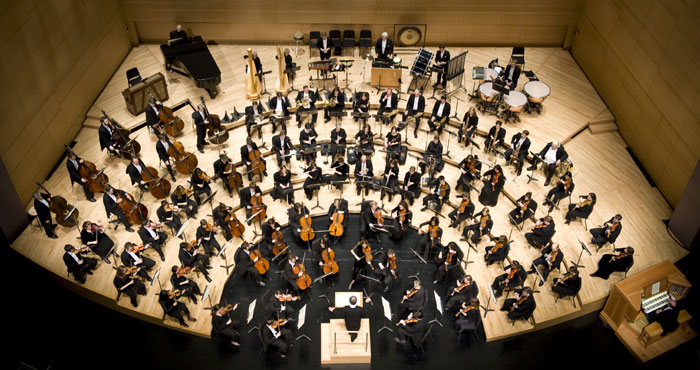










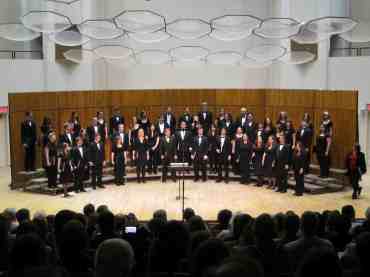
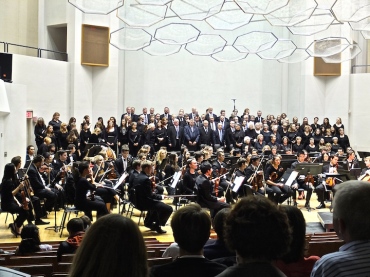
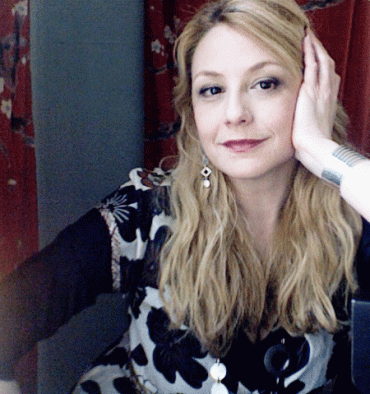
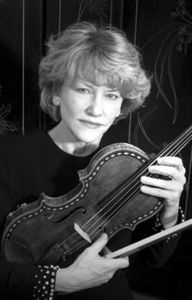
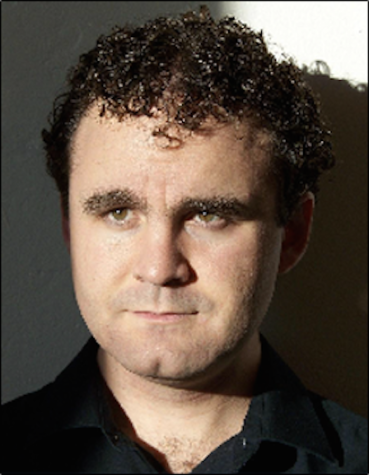
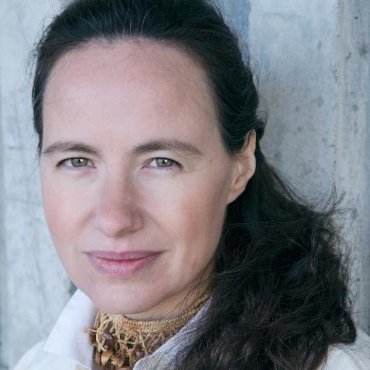
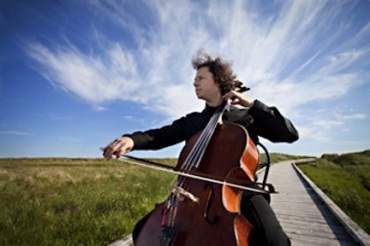
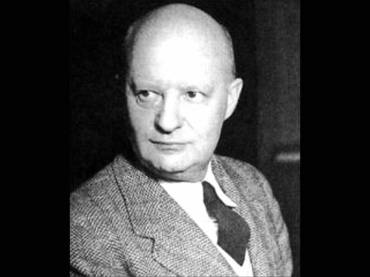
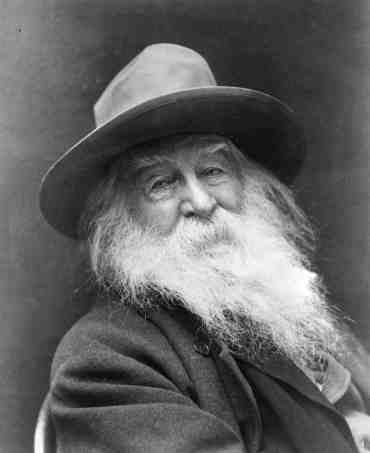
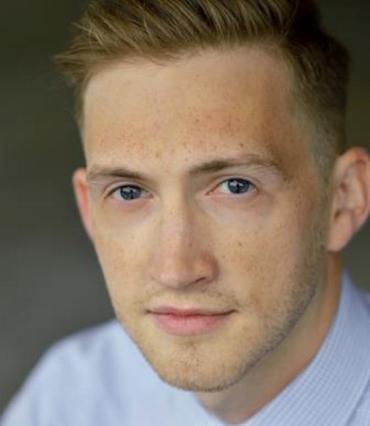
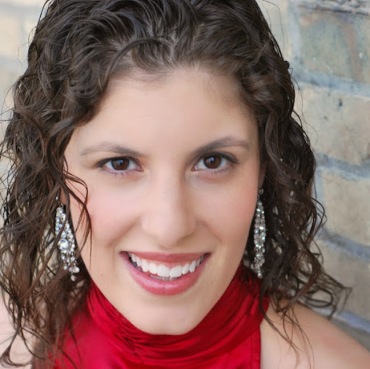

NPR names relevant classical albums in a musical Diary of the Plague Year of the pandemic, racial protests, wildfires and hurricanes
Leave a Comment
PLEASE HELP THE EAR. IF YOU LIKE A CERTAIN BLOG POST, SPREAD THE WORD. FORWARD A LINK TO IT OR, SHARE IT or TAG IT (not just “Like” it) ON FACEBOOK. Performers can use the extra exposure to draw potential audience members to an event. And you might even attract new readers and subscribers to the blog.
By Jacob Stockinger
For an unusual and difficult year, NPR (National Public Radio) and critic Tom Huizenga have found a new and unusual way to recommend this past year’s top classical music recordings.
On the “Deceptive Cadence” blog for NPR, Huizenga kept a personal month-by-month diary of “music and mayhem.”
For last February, for example, this ancient image of The Dance of Death inspired contemporary composer Thomas Adès to compose his own “Totentanz” or Dance of Death. (You can hear an excerpt from the work in the YouTube video at the bottom.)
Some of the thematically-related music is modern or contemporary, some of it is from the Baroque or Classical era.
In June, as protests against the death of George Floyd (below top) flared up and spread worldwide, NPR names a recording of the “Negro Folk Symphony” by African-American composers William Dawson and Ulysses Kay (below bottom), thereby helping to rediscover Black composers whose works have been overlooked and neglected in the concert hall and the recording studio.
Devastating wildfires on the West Coast, Presidential impeachment and hurricanes on the Gulf Coast also found their way into the choices of music to listen to.
It is an unusual approach, but The Ear thinks it works.
See and hear for yourself by going to the sonic diary and listening to the samples provided.
Here is a link to the NPR album diary: https://www.npr.org/sections/deceptivecadence/2020/12/21/947149286/music-and-mayhem-a-diary-of-classical-albums-for-a-troubled-2020
But many roads, if not all, lead to Rome, as they say.
What is also interesting is that a number of the NPR choices overlap with ones listed by music critics of The New York Times as the 25 best classical albums of 2020.
Some choices also are found on the list of the nominations for the Grammy Awards that will be given out at the end of January.
In other words, the NPR diary can also serve as yet another holiday gift guide if you have gift cards or money to buy some new and notable CDs, and are looking for recommendations.
Here is a link to the Times’ choices, which you can also find with commentary and a local angle, in yesterday’s blog post: https://www.nytimes.com/2020/12/17/arts/music/best-classical-music.html
https://welltempered.wordpress.com/2020/12/27/the-new-york-times-names-the-top-25-classical-recordings-of-2020-and-includes-sample-tracks/
And here is a list to the Grammy nominations: https://welltempered.wordpress.com/2020/11/28/for-holiday-shopping-and-gift-giving-here-are-the-classical-music-nominations-for-the-63rd-grammy-awards-in-2021/
What do you think of the NPR musical diary of the plague year?
Do you find it informative? Accurate? Interesting? Useful?
Would you have different choices of music to express the traumatic events of the past year?
The Ear wants to hear.
Share this:
Tags: #AbrahamLincoln, #African-AmericanComposer, #AlvinCole, #AmericanClassics, #AnnaClyne, #BaroqueMusic, #BerlinerBarockSolisten, #BerlinGermany, #BertrandChamayou, #Blackcomposers, #BlackMusic, #BlogPost, #BlogPosting, #BritishComposer, #BryceDessner, #C.E.P.Bach, #CarlPhilippEmanuelBach, #CarnegieHall, #CelloConcerto, #ChamberMusic, #ChoralMusic, #ChristianReligion, #ClariceJensen, #Classicalera, #ConcertHall, #ContemporaryMusic, #CoronavirusPandemic, #COVID-19, #DanceofDeath, #DavidLang, #DeceptiveCadence, #DonaldNally, #DonaldTrump, #DriftMutiply, #ElectronicMusic, #EnslavedPeople, #FacebookPost, #FacebookPosting, #FemaleComposer, #FerruccioBusoni, #FredericChopin, #FrenchMusician, #GeorgeFloyd, #GoodNight, #GrammyAward, #GrammyNominations, #GulfCoast, #HolidayGiftGuide, #HumanVoice, #iIanoConcerto, #InbalSegev, #JacobStockinger, #JesusChrist, #JonasKaufmann, #JustConstellations, #KirillGerstein, #LeopoldStokowski, #LeosJanacek, #LithuanianNationalSymphony, #LiveMusic, #LondonEngland, #LondonPhilharmonic, #MarinAlsop, #MassProtests, #MichaelHarrison, #MusicCritic, #MusicCritics, #NationalPublicRadio, #NaxosRecords, #NewMusic, #NewYorkCity, #NewYorkPhilharmonic, #NewYorkTimes, #OlegBezborodko, #OperaMusiclibretto, #OrchestralMusic, #PaulMoravec, #PhiladelphiaPennsylvania, #PianoConcertino, #PoliceShooting, #PoliticallyRelevant, #PresidentTrump, #ProtectYourselfFromInfection, #RacialJustice, #RecordedMusic, #RecordingStudio, #RoomfulofTeeth, #SanctuaryRoad, #SarahKirklandSnider, #SocialJustice, #SociallyRelevant, #SocialMedia, #SystemicRacism, #TenorSinger, #TheCrossing, #TheEar, #TheodoreRoosevelt, #ThomasAdès, #TomHuizenga, #TristanPerich, #UkrainianComposer, #UndergroundRailroad, #UnitedKingdom, #UnitedStates, #ValentinSilvestrov, #VikingurOlafsson, #VocalMusic, #WestCoast, #WilliamDawson, #WilliamGrantStill, #YouTubevideo, 2020, 2021, Abraham Lincoln, Adès, African American, Album, Alsop, Alvin Cole, American, American Classics, ancient, angle, anicent, Anna Clyne, April, Arts, audience, August, award, Bach, Baroque, Baroque music, beauty, behvaior, Berlin, Berliner Barock Solisten, Bertrand Chamayou, best, black, black music, blog, bond, British, British composer, Bryce Dessner, Busoni, C.P.E. Bach, cadence, California, call, Carl Philipp Emanuel Bach, Carnegie Hall, Catholic, cautionary, cellist, Cello, Cello Concerto, Chamber music, Child, Choir, Chopin, choral music, Christ, Christian religion, Christianity, Clarice Jensen, Classical era, Classical music, classicalmusic, Clyne, comfort, commentary, compelling, composer, Concert, concert hall, concerto, conductor, confrontation, Constellation, contemporary, coronavirus, dance, Dance of Death, David Lang, Davidsen, deals]new, death, December, Deceptive Cadence, diary, difficult, Donald Nally, Donald Trump, Drift Multiply, Early music, electronic, email, enslaved, enslaved people, ephemeral, escape, excerpt, Facebook, faith, fatal, fauna, February, Feburary, female, female composer, Ferruccio Busoni, flared, flora, folk, forward, fragility, France, Frédéric Chopin, freedom, French, George Floyd, Gerstein, gift, gift card, God, good night, Grammy, Gulf Coast, harmonie, Harrison, Holiday, holiday gift, holiday gift guide, hope, horrifying, human, human voice, Hurricane, image, impreachment, Inbal Segev, infection, inspire, Jacob Stockinger, Janacek, January, Jensen, Jesus, Jesus Christ, Jonas Kaufmann, June, Just Constellations, Kaufmann, Kirill Gerstein, l, Leopold Stokowski, Leos Janacek, life, like, Lincoln, link, Lise Davidsen, listen, Lithuania, Lithuanian National Symphony, live concert, live music, Living composer, living composers, local, London, London Philharmonic, lullaby, Marin Alsop, Masonic, mass, mayhem, me, mesmerizing, Michael Harrison, money, Moravec, Mother, motorcycle, Music, music critic, National Public Radio, nature, Naxos, Naxos Records, Negro, nerves, New Music, New York City, New York Philharmonic, New York Times, nocturnal, nocturne, nominations, November, NPR, October, Olafsson, Oleg Bezborodko, opera, oratorio, Orchestra, orchestral, pandemic, Paul Moravec, People, Perich, personal, Philadelphia, Pianist, Piano, Piano Concertino, planet, poetic, police shooting, Politics, positive, post, posting, precise, precision, President, President Trump, programming, protect, Protect Yourself From Infection, protest, race, racial justice, racism, rally, reality, recorded music, recording, recording studio, rediscover, relevant, Religion, repetition, response, Revelation, rising, Roomful of Teeth, sanctuary, Sanctuary Road, Sarah Kirkland Snider, September, share, signature, Silvestrov, sing, singer, smart, smooth, social justice, social media, solitude, sonic, sorrow, soundtrack, spread, statues, studio, sweet, symphony, systemic racism, tag, tangy, tenor, terminal, test, texture, The Crossing, The Ear, thematic, Theodore Roosevelt, Thomas Ades, thrill, times, Tom Huizenga, top, Totentanz, traditional, traumatic, trial, Tristan Perich, troubled, U.K., Ukraine, Ukrainian, Ukrainian composer, Ulysses Kay, Underground Railroad, unite, United Kingdom, United States, unusual, Valentin Silvestrov, Vikingur Olafsson, Violin, violinist, vocal music, voice, west coast, wildfire, William Dawson, William Grant Still, Wisconsin, witty, woman, work, worldwide, year, yesterday, YouTube